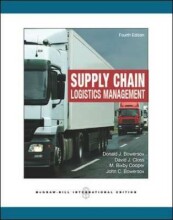Understanding Groups and Managing Work teams - How are groups turned into effective teams?
8 important questions on Understanding Groups and Managing Work teams - How are groups turned into effective teams?
What is the difference between work teams and workgroups?
Teams: work intensely on specific common goals
What are common types of work teams?
- Problem-solving: improve work activities/ solve a specific problem
- Self-managed: without a manager and responsible for complete work process
- Cross-functional team: team with various specialities
- Virtual team: technology to link
What are four key components of effective teams?
- Context
- Composition
- Work design
- Process
- Higher grades + faster learning
- Never study anything twice
- 100% sure, 100% understanding
What factors in the context appear to make a team effective?
- Adequate resources: support from the organization
- Leadership and structure:
- Trust:
- Performance evaluation and reward systems: (EXPECTANCY THEORY)
What team composition factors lead to effectiveness?
- Abilities of member (different types of roles)
- Personality (
- Allocating roles
- Diversity (
- Size
- Member flexibility
- Member preferences
How does work design affect team effectiveness?
- Autonomy
- Variety of skills
- Being able to complete a whole and identifiable task or product
- significant impact
JOB CHARACTERISTICS MODEL
What team processes are related to team effectiveness?
- Common plan and purpose
- Specific goals
- Team efficacy
- Conflict levels
- Minimize tendency for social loafing
How can managers shape team behavior?
- SELECTION
- EMPLOYEE TRAINING
- REWARDING THE APPROPRIATE TEAM BEHAVIOR
The question on the page originate from the summary of the following study material:
- A unique study and practice tool
- Never study anything twice again
- Get the grades you hope for
- 100% sure, 100% understanding






























